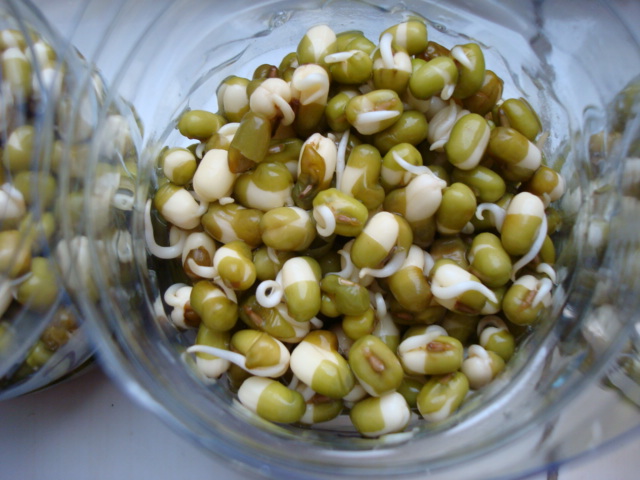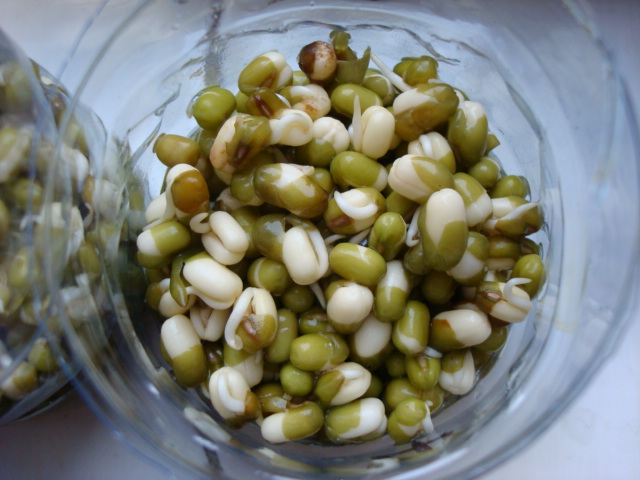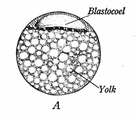|
March 29, 2008 Weird Science - the Microwaved Water Test If you've been following this story, you can click here to jump to the astonishing results of this experiment. The Back Story of the Experiment: I'm on the mailing list of a guy, I'm going to call him Anti-microwave Guy, who is convinced that mobile phones, wifi, and microwave radiation are causing everything from autism to cancer with chronic fatigue syndrome, ADD (Attention Deficit Disorder) and the disappearance of bees and frogs thrown in for good measure. I support him in his efforts to get some controls put on this technology, but I also find some of the material he sends out to be a bit... questionable. Last week he sent me this:
I did a quick Google search on this topic and found quite a number of science teachers in the U.S. who had taken this on as a class project and been unable to duplicate the results. But when I wrote to him to warn him about the possibility of losing credibility, and hurting his own cause, he took it personally and wrote back with this:
Good questions I suppose. I'm not a published scientist with a string of degrees. I'm not being translated into other languages, though I did once make a movie that was translated into German, much to the amusement of the original cast. What right do I have to question the authority of this guy who, though he may not actually be a scientist (he has a BA in Psychology and an MA in advanced Japanese Studies) does list several letters after his name, has apparently been published somewhere, is apparently being translated by somebody, and really must know what he is talking about? What right do I have to question him? What right do I have to question anybody? Well, everybody has the right to question. Nobody has the right to silence others because they lack academic qualifications. Anti-microwave Guy would be the first to say this if somebody tried to silence him. He's not a scientist and he's talking about scientific things.
So, okay. Today Ruth and I went downtown and purchased some flower seeds. I would have preferred vegetable seeds, because beans are bigger and more photogenic. But flower seeds were all we could find. Ruth is preparing labels for four different plantings, to be watered with our drinking water boiled in a kettle, our drinking water after it's been boiled in the microwave, our tap water also boiled in a kettle (in case our treated water has been microwaved by the treatment plant for some reason.), and our tap water after it's been boiled in the microwave. (Ruth wanted to boil all the water to eliminate the question of whether heating causes any effect.) All the seeds come from the same package. All will be planted in potting soil from the same bag. This is to be a "double blind experiment". ( Neither I nor my research subjects, the seeds, know which water is which. ) My theory is
that water is water. It's been here since the earth was young,
passed through the digestive system of dinosaurs, been
polluted and purified and recycled for centuries, and to think that
it turns into poison when Ruth boils it in a microwave oven is
just.... counter-intuitive. That's my experimental bias. In a
few days we'll know the results, which is almost but not quite
the same as knowing the truth. I'll keep you posted.
Hopefully I'll earn the right to question Anti-Microwave Guy. Getting Set Up: Science turns out to be full of pitfalls. Science turns out to be harder than it looks. Ruth has carefully documented all of the procedures she's done with the water, eliminating all the variables she can think of, such as boiling both tap water and treated water in the kettle, letting both cool in large bowls, drying the funnel she used to fill the bottles between bottles, boiling both tap water and treated water in the microwave oven in identical smaller bowls. But when we got back from this evening's English corner, there was water all over the table and soaking into my writing class assignments. Bottle number three had a crack in it and was leaking. Fortunately it hadn't lost too much water, so we could simply pour what was left into a new bottle, mop up the water, hang the assignments up to dry, and I was ready to start preparing the dirt and seeds.
I set up the paper cups with the dirt, trying very hard to make sure that each cup was the same, which turned out to be four heaping tablespoons per cup. The dirt seemed very dry, and I know seeds need water to germinate. so for cup number one I started by putting in six capfuls of water from bottle number one, thinking it wasn't much and would all soak in. Well, it WAS too much and I ended up with a quarter inch of water above the soil. Fortunately I hadn't put in the seeds yet, so I could follow Ruth's suggestion and simply throw cup number one away, set up a new cup to be number one, take a spoonful of soil from each of the other three cups, and end up with three spoonfuls of soil in each cup instead of four.
The seeds turned out to be not just small, as I expected, but nearly microscopic. I realized why Miss. Drummond in grade three had given us large beans to plant. These things were very difficult to work with. I gained a new respect for the researchers transferring blastosheres* from the uteruses of mice. But I think they must work with microscopes and robotic tweezers. I divided the seeds into four equal piles, but the only way I could transfer them to the cups was by pressing my finger down on them and then rubbing them off over the soil. I couldn't really see how they landed, or whether they were all equally dispersed on the dirt. So if there is any variation in how well they sprout, I've already got one possible reason to distrust the experimental results. Anyway, now we shall see. My plan is to give each cup a capful of water each day, and just see what happens. What I should do, and maybe will do, is buy some mung beans and grow some bean sprouts. That will be much more obvious evidence of sprouting, or failing to sprout, depending on the water used. March 23, 2008 Experiment Expanded Today in the village market I found some mung bean seeds. At least I think they are mung bean seeds. I think they will sprout. Accordingly I have set out four containers with three teaspoons of seeds each.
They are being watered with the water Ruth prepared, and we shall see which ones sprout first and grow best. This should be much more visual than the flower test. And, after all, the claim made by Anti-microwave Guy's information was that the seeds won't sprout. I should have some results in a day or so. March 24 Test Results No sign of activity in the flower pots. The mung beans are all swelling, but there is no indication that any are behaving differently from the others. They all look like this:
Swelling but not yet sprouting. March 25 Test Results Again, still no signs of sprouting in any of the flower pots. All the mung bean containers are sprouting, and I can't see any difference between them.
All sprouting. No apparent difference. They all look like this:
It's too early to call this definitive test results, but I don't expect to see a big difference as these seeds continue to sprout. March 26 Test Results
All sprouting. No apparent difference. They all look like this:
It's still too early to call this definitive test results, but I'm not seeing a big difference as these seeds continue to sprout. March 27 Test Results Sprouting continues. Still no apparent difference from cup to cup. They all look like this:
I've stopped leaving them soak in the water and, as for proper sprouting procedures, merely rinse them with their allotted flavour of water each morning.
The test is starting to look fairly conclusive. But it's fun to watch these things sprout. I can almost see them grow. March 28 Test Results Sprouting continues. This is starting to get.... tedious. Still no apparent difference from cup to cup. They all look like this:
If any cup seems to have slightly fewer beans sprouting, it is cup number 1, but this might be purely subjective. There certainly are sprouts happening, as you can see below:
I'm starting to think we have conclusive results - boiling water in a microwave oven and then using it to water seeds will not prevent them from sprouting.
But I will continue this experiment for one more day, just because it's fun to watch the beans sprout. March 29 Test Results Astonishing! I've decided to call this experiment complete. After all, the statement that motivated it - that microwaved water will not sprout seeds - is obviously not verified by this experiment. And yes, I've been misleading my readers by calling the link to this conclusion "astonishing experimental results". The only people who will be astonished by this are those who believe everything they read on the Internet. I admit to being less than astonished.
If there is a difference in the amount of sprouting from cup to cup, it certainly doesn't support the contention that seeds won't sprout. So, let's have a short science class: Question: What is heat? Answer: Heat is energy
stored in atoms and molecules which is expressed by vibration.
Question: How do Microwaves heat food? Answer: By causing water
molecules to vibrate rapidly. This is why glass,
plastics, and many Question: Do microwaves
leave anything behind in the food after they have made the water
Answer: No. Question: Do microwaves
alter the food in a way that is significantly different from the
way Answer: No. Question: Does this mean that microwaves are perfectly safe? Answer: Uh... no.
There are some scientists who claim to have found health
problems So, does this all this prove that Anti-microwave Guy is wrong about the radiation that bombards us every day? Well, again no. Maybe he has some legitimate concerns. The industry is throwing up phone towers with no controls and every day the air becomes more saturated with electromagnetic radiation. I don't know how much serious research, by real scientists, is being done into possible health problems. Maybe Mr. Anti-microwave Guy has reason for concern. But it does prove that some of the information that Anti-microwave Guy sends out is not accurate. This wasn't the first time I called him on mis-information. He sent out an email previously that was a proven hoax, and when I wrote to him about it he sent out a correction. But in his correction he only admitted that the source of the information, a famous research hospital in America, was not correct, not that the information it presented might be wrong. The famous research hospital says that it is wrong. Other information he has sent out, such as that if food is microwaved in a plastic container the plastic will release cancer causing chemicals, is also disputed on many Internet urban legend sites. When I bought my first microwave oven, years ago, I also purchased a little meter that would tell me if it was leaking radiation. That meter never showed anything. Again, this doesn't prove that my microwave was safe. Maybe the meter was broken. Proving that something is safe is a different thing from proving that something is harmful. Safe under what circumstances? My experiment with sprouting seeds doesn't prove that microwaving the water did no harm. It only proves that microwaving the water won't prevent seeds from sprouting. Maybe it causes other damage, genetic damage that won't show up for years. Maybe. But I don't think we have cause for alarm. Anti-microwave Guy promotes what is known as "the precautionary principle". The idea is that if something could possibly be dangerous, we should not use it until it has been proven to be safe. We should err on the side of caution. I can agree to some extent. But I'm reminded of the first balloon flight, which sent a rooster, a sheep and a duck aloft for fear that going up in a balloon might somehow be different from climbing up a mountain. Maybe they were really afraid of the descent. Proving something to be safe is very difficult, especially when the dangers can be subtle and hard to quantify - genetic damage, damage that won't show up for three generations, increased incidence of diseases that didn't even have names a few years ago, increased incidence of diseases that have been invented by the pharmaceutical industry to sell drugs (I've heard that "shyness" is now a "disease" that can be cured with a pill.) How safe do we need to be? Or is life, including the life of our species, inherently unsafe and we should just accept this fact? If mobile phones cause sterility, and thus will wipe out ninety percent of humanity three generations from now, wouldn't that be a gift to the planet? Far less painful than enforced population control. Mulling over these thoughts leaves me very vulnerable to "quote mining" that will take what I say out of context. But I think they are thoughts that should be mulled. This world is full of alarmists who will tell us that there are cancer causing chemicals in the shampoo we use, that the fire retardant we put in our pillows causes brain tumors, that the CIA brought down the twin towers, that doctors already know how to cure cancer but won't tell anybody because it will be bad for business, and that we have very good reasons to be afraid of our governments and leaders. Yet we are now living longer than we ever have before. In just about every way that I can think of, this is a better world than it was when I was a child. And many of us live better than kings lived a century ago. So let's have some balance. Is there really such a condition as EMS (Electro Magnetic Sensitivity) or is this just another manifestation of good old fashioned hypochondria? I honestly don't know. If all the hypochondriacs in the world get together, they can convince each other that whatever they believe is real actually is real. They can form lobby groups. And then they can influence our laws and regulations. The scientific method has never been more important than it is now. As for Anti-microwave Guy, If some of his information isn't accurate, how much do we believe? Sending out nonsense that is easily disproven does damage his credibility, and it shouldn't take a Masters degree to point this out. Anybody should be entitled to question answers, even the answers presented by Anti-microwave Guy. By the way, the flower seed component of this experiment has been cancelled. None of the seeds sprouted. This proves that I can't count on flower seeds I buy in the Nan Chan Temple Market to sprout.
**Ruth's correlation story: A correlation was noticed between the number of storks on rooftops in Amsterdam and the presence of a babies in the homes. Strangely enough an actual link was discovered, though not a causal relationship. The storks were not causing the babies, bringing the babies, or causing parents to make babies. But houses which contained a baby were kept warmer than houses that didn't, and so were preferred as nesting sites by the storks. Correlations are tricky things to nail down. (return to the where you were reading) Return to The Man in China Home
|





